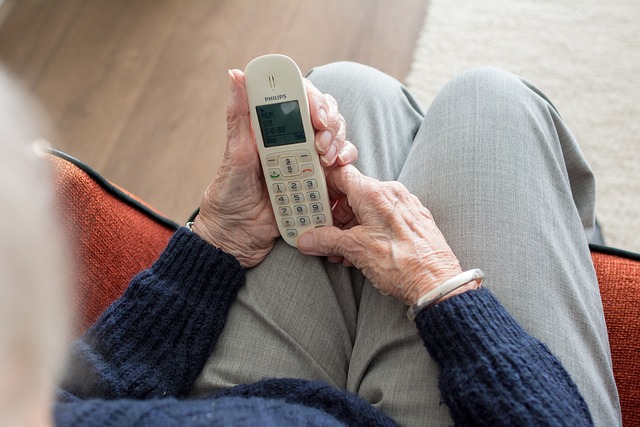Elderly companion services are specialized care programs designed to support individuals with Alzheimer's disease through all stages of cognitive decline and memory loss. These services provide not only assistance with daily activities but also emotional support, helping patients maintain a sense of understanding, value, and stability. As the condition progresses, the role of these companions becomes even more critical in maintaining quality of life for those affected by Alzheimer's. The caregivers are highly trained professionals, often holding certifications like CDP or ACT, ensuring they can handle the complexities of dementia care with empathy and competence. These services facilitate personalized interactions and activities aimed at stimulating cognitive function, fostering social connections, and improving overall well-being. They also act as a vital communication link between patients, families, and healthcare providers. By offering a consistent presence and adapting to the changing needs of patients, elderly companion services significantly enhance the lives of those with Alzheimer's, providing a lifeline that improves their quality of life and supports families through this challenging journey. These services are integral to Alzheimer's care, embodying the importance of compassionate, person-centered support tailored to each individual's needs.
Exploring the delicate interplay between Alzheimer’s disease and its profound effects on the elderly, this article sheds light on the transformative role of compassionate elderly companion services. Through insightful analysis and real-life examples, it delves into tailored support strategies, highlighting the training and qualifications that set professional elderly companions apart in the care for those with Alzheimer’s. Join us as we uncover stories of hope, underscoring the positive impact these services can have on both the patient and their families.
- Understanding Alzheimer's Disease and Its Impact on the Elderly
- The Role of Compassionate Elderly Companion Services in Alzheimer's Care
- Strategies for Providing Tailored Support Through Elderly Companion Services
- Training and Qualifications of Professional Elderly Companions for Alzheimer's Patients
- Stories of Hope: Successful Alzheimer's Care with the Help of Elderly Companion Services
Understanding Alzheimer's Disease and Its Impact on the Elderly

Alzheimer’s disease presents a significant challenge, not only for those diagnosed but also for their elderly companions and caregivers. It is characterized by the decline in cognitive functions, memory loss, and changes in behavior and mood, often leading to confusion, disorientation, and difficulty in performing daily tasks. As the condition progresses, the reliance on companion services becomes more pronounced, as the disease’s hallmarks—neurodegeneration and the formation of neurofibrillary tangles and amyloid plaques in the brain—render individuals increasingly vulnerable and dependent on others for care and support. The role of elderly companion services is crucial in providing a consistent presence that can help maintain the dignity and quality of life for those affected by Alzheimer’s. These services offer not only assistance with activities of daily living but also emotional support, ensuring that the elderly individual feels understood, valued, and comforted during their journey with this progressive condition. By fostering an environment that is patient and empathetic, these companion services can significantly enhance the well-being of individuals with Alzheimer’s, enabling them to live as fulfilling a life as possible amidst the complexities of dementia.
The Role of Compassionate Elderly Companion Services in Alzheimer's Care

Compassionate elderly companion services play a pivotal role in the care of individuals with Alzheimer’s disease, offering a vital blend of emotional support and daily assistance. These services are designed to provide a comforting presence for seniors experiencing memory loss and cognitive decline, helping them maintain a sense of stability and familiarity amidst the challenges of the condition. Trained companions work closely with caregivers and healthcare professionals to create personalized care plans that cater to the unique needs and preferences of each patient. This ensures a tailored approach to support not just the physical well-being but also the emotional health of those living with Alzheimer’s. The presence of a dedicated companion can alleviate feelings of loneliness and confusion, fostering an environment where seniors can thrive despite their diagnosis. Moreover, these services often extend beyond basic care to include activities that stimulate cognitive functions, promote social engagement, and enhance the overall quality of life for individuals with Alzheimer’s, thus making them a cornerstone in holistic Alzheimer’s care strategies.
Furthermore, elderly companion services are adaptable, capable of scaling their involvement based on the progression of the disease. As the condition advances, companions can adjust their support to meet evolving needs, ensuring continuity of care that is both compassionate and effective. They also serve as a bridge between patients, their families, and professional healthcare providers, facilitating open communication and smoother transitions in care. By providing reliable and empathetic assistance, these services help families navigate the complexities of Alzheimer’s care with greater peace of mind, knowing their loved ones are not only cared for but also treated with the dignity and respect they deserve.
Strategies for Providing Tailored Support Through Elderly Companion Services

In the realm of Alzheimer’s care, elderly companion services play a pivotal role in delivering tailored support to individuals facing memory impairments. These services are designed to address the unique challenges presented by Alzheimer’s disease, offering a personalized approach that caters to the emotional and physical needs of each patient. By matching companions with residents based on shared interests, hobbies, or life experiences, these services foster meaningful connections that can alleviate feelings of loneliness and confusion often associated with dementia. The companions provide not only company but also engage in activities that encourage cognitive function, maintain social skills, and support the emotional well-being of the elderly. This person-centered approach ensures that care is aligned with the individual’s preferences, history, and routines, creating a comforting and familiar environment that can slow the progression of symptoms and improve overall quality of life.
Moreover, elderly companion services encompass a comprehensive support system that extends beyond mere companionship. They offer a structured framework for care that includes assistance with daily tasks, monitoring health conditions, and liaising with healthcare professionals to ensure consistent and informed care. The consistency of caregivers’ presence helps establish trust and rapport, which is crucial for individuals with Alzheimer’s who may have difficulty adapting to new people. By focusing on the individual’s needs and preferences, these services enhance the dignity and autonomy of the elderly, allowing them to age with grace while receiving compassionate care that respects their individuality.
Training and Qualifications of Professional Elderly Companions for Alzheimer's Patients

When selecting a professional elderly companion for individuals with Alzheimer’s, it is imperative to consider the specialized training and qualifications these companions possess. These dedicated caregivers undergo comprehensive programs designed to equip them with the necessary skills to provide compassionate care tailored to the unique needs of those living with Alzheimer’s. Their training encompasses a deep understanding of Alzheimer’s disease progression, including the behavioral and cognitive changes that accompany different stages. This enables them to offer consistent support, creating a stable and comforting environment for patients. Additionally, they are trained in various therapeutic activities and interventions aimed at enhancing the quality of life for Alzheimer’s patients.
Professional elderly companion services ensure that their caregivers maintain up-to-date certifications and adhere to stringent industry standards. They often hold professional certifications, such as a Certified Dementia Practitioner (CDP) or a Certified Alzheimer’s Care Trainer (ACT), which validate their expertise in Alzheimer’s care. Moreover, they are required to undergo background checks and ongoing training to guarantee the highest level of competence and sensitivity when interacting with elderly patients. This commitment to excellence and continuous professional development is a cornerstone of reputable elderly companion services, providing peace of mind for families seeking compassionate care for their loved ones with Alzheimer’s.
Stories of Hope: Successful Alzheimer's Care with the Help of Elderly Companion Services

In recent years, the landscape of Alzheimer’s care has been significantly enriched by the integration of elderly companion services. These services offer a lifeline to those navigating the challenges posed by Alzheimer’s disease. Through personalized attention and supportive interactions, these companions provide a consistent presence that can alleviate feelings of isolation and confusion often experienced by individuals with Alzheimer’s. The impact of such care is profound, as it not only addresses the clinical aspects of the condition but also focuses on the emotional and social well-being of the patients. Success stories abound where elderly companion services have made a significant difference in the quality of life for those with Alzheimer’s. Caregivers from these services are trained to engage with patients in meaningful ways, fostering a sense of connection and belonging that can be lost amidst the progression of the disease. This human touch often leads to improved cognitive function and increased emotional stability, as evidenced by numerous studies and anecdotal evidence from satisfied families and care recipients. The role of elderly companion services in Alzheimer’s care is a testament to the power of compassionate support tailored to the unique needs of each individual, offering hope and dignity in the face of this challenging condition.
In conclusion, Alzheimer’s disease presents unique challenges in elderly care, yet the integration of compassionate elderly companion services offers a beacon of hope. By understanding the condition and its implications, we can tailor support to meet the needs of those affected. The training and qualifications of professional elderly companions are paramount in delivering empathetic and effective care. Through real-life success stories, it’s evident that these services not only enhance the quality of life for Alzheimer’s patients but also provide peace of mind for their families. As we continue to refine and expand elderly companion services, compassion remains the cornerstone of dignified Alzheimer’s care.






